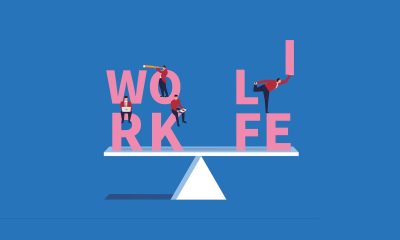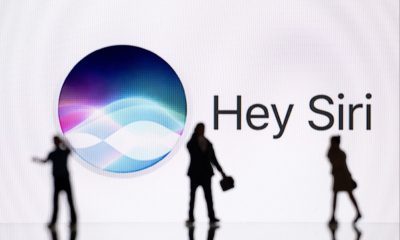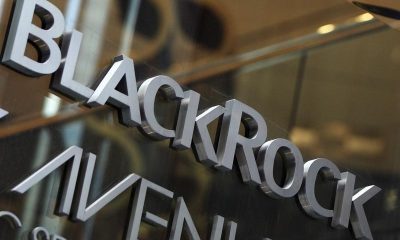Investing
U.S. Supreme Court raises doubts about suit against Twitter over Istanbul massacre

© Reuters. FILE PHOTO: A view of the Twitter logo at its corporate headquarters in San Francisco, California, U.S. November 18, 2022. REUTERS/Carlos Barria
By Andrew Chung and John Kruzel
WASHINGTON (Reuters) -The U.S. Supreme Court justices expressed skepticism on Wednesday toward a lawsuit against Twitter Inc (NYSE:) by the family of a Jordanian man killed in an Istanbul nightclub massacre as they weighed for a second straight day a bid to hold internet companies accountable for contentious content posted by users.
American relatives of Nawras Alassaf accused Twitter of aiding and abetting the Islamic State group, which claimed responsibility for the Jan. 1, 2017, attack that killed him and 38 others shortly after midnight during a New Year’s celebration, by failing to police the platform for its accounts or posts.
The justices on Tuesday heard arguments in an appeal arising from a separate lawsuit against Google LLC-owned YouTube, part of Alphabet (NASDAQ:) Inc, by the family of an American woman killed in a Paris attack by Islamist militants. Both lawsuits were brought under a U.S. law that enables Americans to recover damages related to “an act of international terrorism.”
Conservative Justice Neil Gorsuch said the statute focuses liability on aiding a person who engaged in a terrorist act.
“We all appreciate how horrible the attack was, but there’s very little linking the defendants in this complaint to those persons,” Gorsuch said.
Justice Department lawyer Edwin Kneedler, arguing in favor of Twitter’s position on behalf of President Joe Biden’s administration, said a company might be liable under the statute if they engaged in “personal interaction” with the perpetrator of an unlawful act. But Kneedler said Twitter’s services were too remote from the act of terrorism in the case.
Justice Brett Kavanaugh raised doubts over the scope of the statute, reminding Eric Schnapper, a lawyer for Alassaf’s relatives, about CNN’s 1997 interview with the then-leader of al Qaeda leader Osama bin Laden.
“Could CNN have been sued for aiding and abetting the September 11 attacks?” Kavanaugh asked, referring to the 2001 attacks on the United States in which hijacked airplanes were crashed by al Qaeda militants.
Twitter is appealing after a lower court allowed the lawsuit to proceed and found that the company had refused to take “meaningful steps” to prevent Islamic State’s use of the social media platform.
The justices asked Seth Waxman, the lawyer representing Twitter, numerous questions about the scope of the Anti-Terrorism Act under which the lawsuit was filed, testing the company’s argument that it should not be held liable for providing a service used by millions of people while also enforcing a policy against terrorism-related content.
“You’re helping by providing your service to those people, with the explicit knowledge that those people are using it to advance terrorism,” liberal Justice Elena Kagan said.
Conservative Justice Amy Coney Barrett pressed Waxman on the issue of the company knowing “bad people” are using the platform but “you don’t do anything about it.”
Using initials for Islamic State, Barrett said, “If you know ISIS is using it, you know ISIS is going to be doing bad things, you know ISIS is going to be committing acts of terrorism.”
“How specific must the knowledge be? There must be a range between aiding the enterprise and knowing the time, date and location of the particular act, right?” Barrett asked.
A key issue is whether the family’s claims sufficiently allege that the company knowingly provided “substantial assistance” to an “act of international terrorism” that would allow the relatives to maintain their suit and seek damages under the anti-terrorism law.
Biden’s administration is backing Twitter in the case, saying the Anti-Terrorism Act imposes liability for assisting a terrorist act and not for “providing generalized aid to a foreign terrorist organization” with no causal link to the act at issue. The administration backed the plaintiffs in the case argued on Tuesday.
Islamic State called the attack revenge for Turkish military involvement in Syria. The main suspect, Abdulkadir Masharipov, an Uzbek national, was later captured by police.
The justices in the case argued on Tuesday appeared torn over whether to narrow a form of legal immunity provided under Section 230 of the Communications Decency Act that shields internet companies from a wide array of lawsuits. The lower court dismissed that case largely based on Section 230 immunity.
That case involves a bid by the family of an American woman named Nohemi Gonzalez who was fatally shot in a 2015 rampage in Paris – an attack for which Islamic State also claimed responsibility – to hold Google liable for recommending to certain YouTube users content from the group.
In the Twitter case, the San Francisco-based 9th U.S. Circuit Court of Appeals did not consider whether Section 230 barred the family’s lawsuit. Google and Meta’s Facebook (NASDAQ:) also are defendants, but did not formally join Twitter’s appeal.
Rulings in both cases are due by the end of June.
Read the full article here

-

 Investing4 days ago
Investing4 days agoThis All-Access Pass to Learning Is Now $20 for Black Friday
-

 Passive Income4 days ago
Passive Income4 days agoHow to Create a Routine That Balances Rest and Business Success
-

 Side Hustles5 days ago
Side Hustles5 days agoApple Prepares a New AI-Powered Siri to Compete With ChatGPT
-

 Side Hustles2 days ago
Side Hustles2 days agoA Macy’s Employee Made Accounting Errors Worth $132 Million
-

 Side Hustles6 days ago
Side Hustles6 days agoMIT Gives Free Tuition For Families Earning $200,000 or Less
-

 Passive Income5 days ago
Passive Income5 days agoCustomers Want More Than Just a Product — Here’s How to Keep Up
-

 Side Hustles4 days ago
Side Hustles4 days agoGift the Power of Language Learning with This Limited-Time Price on Babbel
-

 Investing1 day ago
Investing1 day agoFactbox-How Trump can overhaul US financial regulators when he takes office By Reuters


















